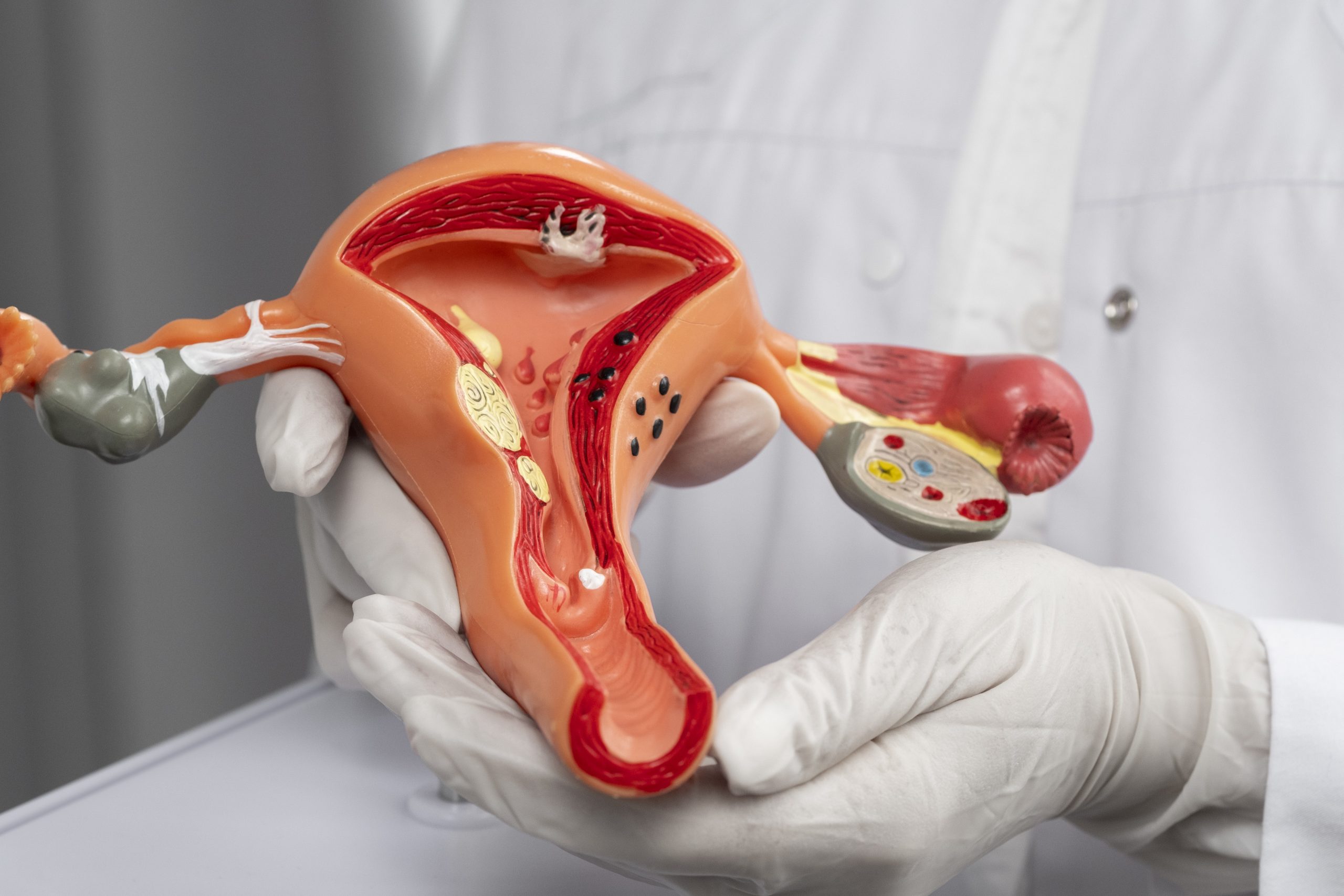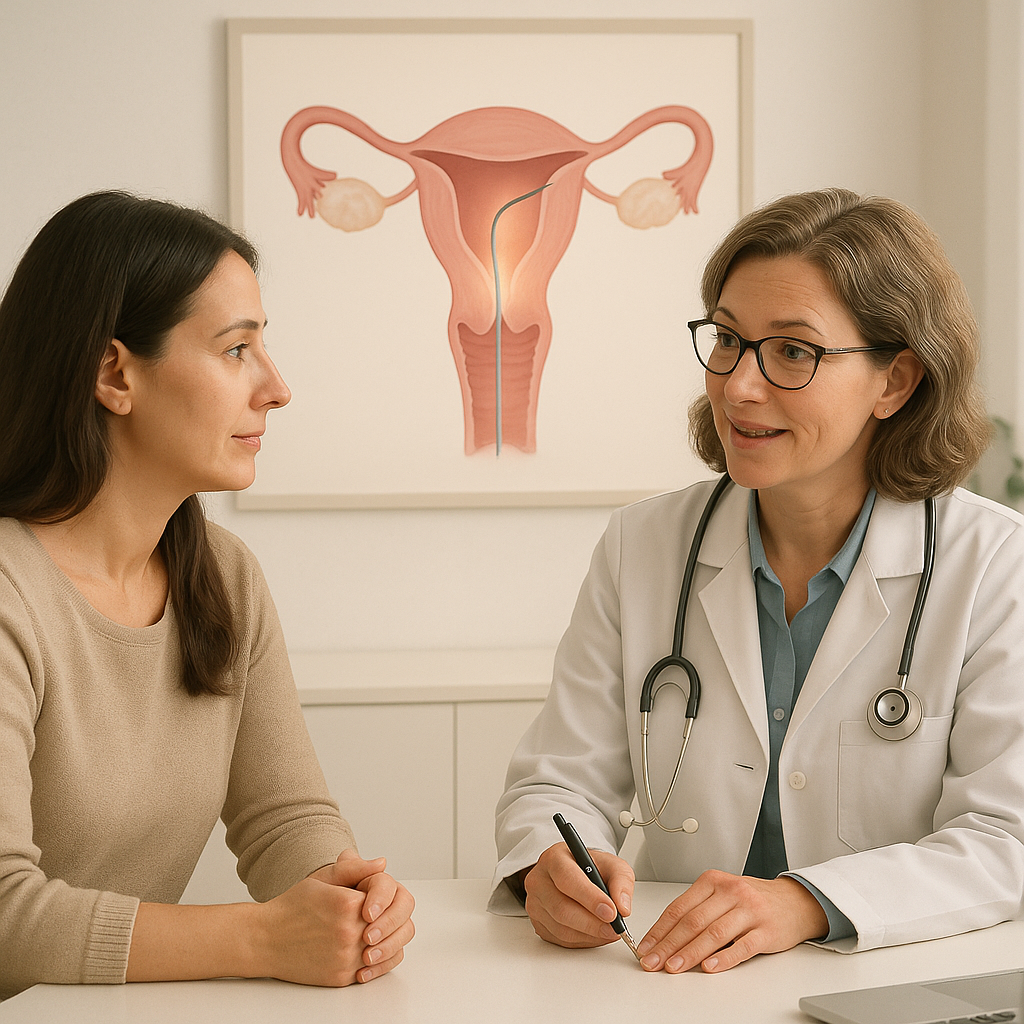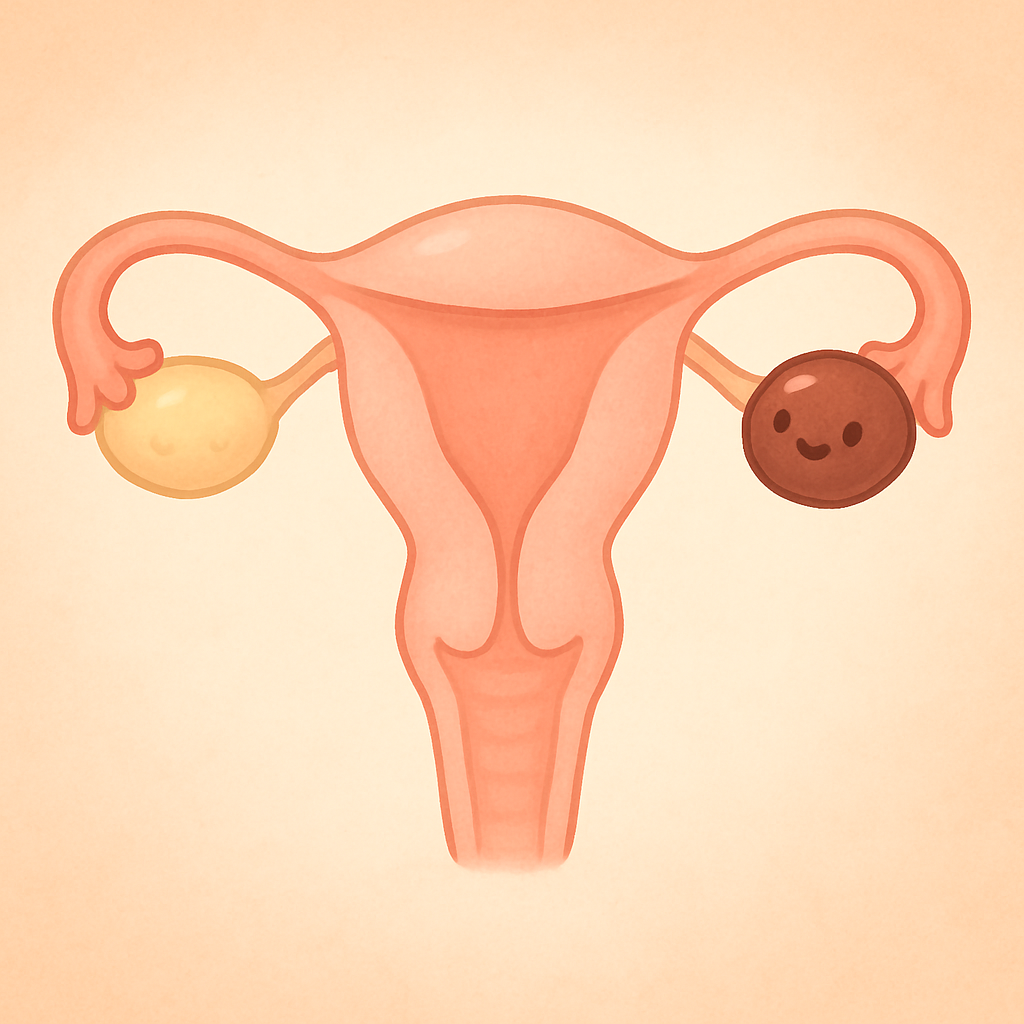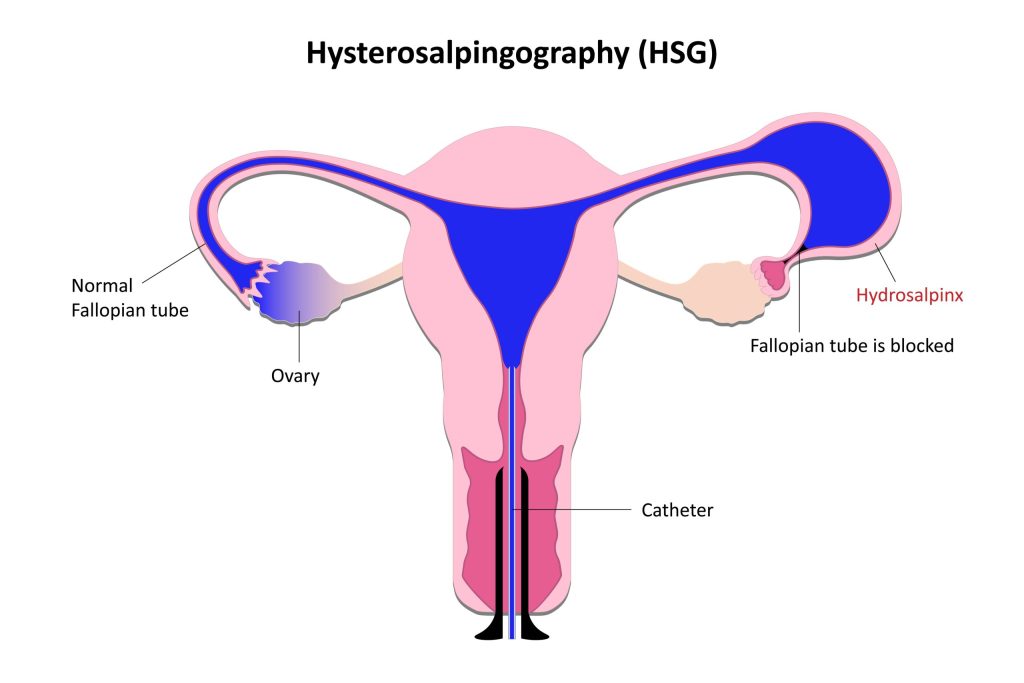
Myomas, also known as fibroids or myoma of the uterus, are non-cancerous growths that develop in the muscular layer of the uterus. They are quite common, affecting many women during their reproductive years. While some women experience no symptoms, others may face complications, especially during pregnancy. The impact of myomas on pregnancy varies depending on their size, number, and location within the uterus.
What is Myoma?
Myoma, also referred to as uterine myoma, is a benign tumor composed of smooth muscle and fibrous tissue. These tumors can grow in different parts of the uterus, sometimes remaining small and unnoticed, while in other cases, they enlarge significantly and cause discomfort.
Types of Myoma
There are several types of myomas, categorized based on their location within the uterus:
- Intramural Myoma: These develop within the muscular wall of the uterus and are the most common type. They can cause heavy menstrual bleeding and pelvic pain.
- Subserosal Myoma: These grow on the outer surface of the uterus. They may press on nearby organs such as the bladder or intestines, leading to urinary issues or constipation.
- Submucosal Myoma: Located just beneath the inner lining of the uterus, these fibroids can distort the uterine cavity and cause heavy bleeding and fertility issues.
- Pedunculated Myoma: These grow on a stalk either inside or outside the uterus and can sometimes twist, causing severe pain.
- Intra Uterine Myoma: A myoma that develops inside the uterine cavity, potentially interfering with implantation and pregnancy.
What are the Causes and Risk Factors of Myoma?
The exact cause of myoma formation remains unclear, but several factors contribute to their development:
- Hormonal Influence: Estrogen and progesterone play a significant role in the growth of myomas. These hormones stimulate the uterine lining during the menstrual cycle and may encourage fibroid growth.
- Genetic Factors: A family history of myomas increases the likelihood of developing them.
- Age: The risk of developing myomas increases with age, particularly in women aged 30-50.
- Lifestyle and Diet: A diet high in red meat and low in green vegetables, excessive alcohol consumption, and obesity can increase the risk.
- Uterine Myoma Causes: Inflammation and abnormal cell growth in the uterus are believed to contribute to their development.
 What are the Symptoms of Myoma?
What are the Symptoms of Myoma?
Not all women with myomas experience symptoms. However, when symptoms do occur, they can significantly impact daily life.
Common Symptoms of Myoma
- Heavy and prolonged menstrual bleeding (menorrhagia)
- Severe menstrual cramps
- Pelvic pain and pressure
- Frequent urination due to pressure on the bladder
- Constipation or bloating if myomas press on the intestines
- Pain during intercourse
- Lower back pain
- Anemia due to excessive blood loss
How To Detect Myoma?
Early detection is crucial for managing myomas effectively. Various methods can be used to diagnose their presence:
- Pelvic Examination: A doctor may detect an enlarged uterus during a routine gynecological exam.
- Ultrasound: A non-invasive imaging test that helps visualize the size and location of myomas.
- MRI (Magnetic Resonance Imaging): Provides a detailed view of the uterine structure and helps in assessing the depth of myomas.
- Hysteroscopy: A thin, lighted tube is inserted into the uterus to examine the inner walls for fibroids.
- Laparoscopy: A minimally invasive procedure where a small camera is inserted into the abdomen to view the outer surface of the uterus.
How Do Myomas Affect Pregnancy?
Myomas can impact pregnancy in multiple ways. While many women with myomas conceive and deliver healthy babies, others may experience complications depending on the size and location of the growths.
Myoma and Fertility Problems
Myomas can interfere with conception by:
- Blocking the fallopian tubes, preventing fertilization.
- Altering the shape of the uterus, making implantation difficult.
- Disrupting blood flow to the uterine lining, reducing the chances of a successful pregnancy.
Risks of Myoma During Pregnancy
During pregnancy, hormonal changes can cause myomas to grow, leading to potential complications. The severity of these complications depends on the size, number, and location of the fibroids.
Effects on Fetal Growth
- Large myomas may occupy significant space within the uterus, restricting fetal development.
- Intrauterine Growth Restriction (IUGR): When myomas limit blood flow to the placenta, the baby may not receive enough nutrients, leading to slow growth.
- Decreased Amniotic Fluid Levels: Myomas can impact fluid levels in the uterus, creating an environment that is less than ideal for fetal development.
Risk of Preterm Labor
- Myomas can cause irregular uterine contractions, which may lead to preterm labor.
- Uterine Irritability: The presence of large myomas may create tension in the uterus, making early contractions more likely.
- Premature Rupture of Membranes (PROM): Some women with myomas experience early breaking of the water, increasing the risk of preterm birth.
Increased Chance of Cesarean Delivery
- Obstruction of the Birth Canal: Large myomas located near the cervix may prevent vaginal delivery.
- Fetal Malposition: Myomas can force the baby into an abnormal position (such as breech presentation), making a C-section necessary.
- Failure to Progress in Labor: Some women with myomas may experience prolonged labor due to an inability of the uterus to contract effectively.
How Are Myomas Treated?
Treatment for myomas depends on their size, symptoms, and a woman’s reproductive goals. Options include:
- Watchful Waiting: If myomas are small and asymptomatic, they may not require immediate treatment.
- Medications: Hormonal therapies such as birth control pills or GnRH agonists can help shrink myomas.
- Uterine Myoma Treatment: Procedures like uterine artery embolization (UAE) cut off the blood supply to myomas, causing them to shrink.
- Surgical Options:
- Myomectomy: The surgical removal of myomas while preserving the uterus, recommended for women who wish to conceive.
- Hysterectomy: The complete removal of the uterus, a definitive solution for severe cases.
Women considering IVF treatment should consult a doctor regarding the impact of myomas on fertility. A Ivf Treatment in Cyprus may offer specialized care for those looking to conceive despite myomas. Understanding how myomas affect pregnancy can help women make informed health decisions and explore the best treatment options.



 What are the Symptoms of Myoma?
What are the Symptoms of Myoma?


Does the myoma grows again after shrinking or removal by surgery
Yes — uterine fibroids (myomas) can grow again after shrinking or surgical removal, but it depends on several factors:
Type of surgery
Myomectomy (removing the fibroid but keeping the uterus) can relieve symptoms, but new fibroids may develop later because the uterus remains capable of growing them. Recurrence rates vary — often 15–30% within 5 years, especially in younger women or those with multiple fibroids at the time of surgery.
Hysterectomy (removing the uterus entirely) eliminates the possibility of fibroid regrowth, since there’s no uterine tissue left.
Age and hormones
Fibroids are hormone-sensitive, especially to estrogen and progesterone. If you are still premenopausal, hormonal cycles can trigger new growth after surgery.
Method of shrinkage
If fibroids are reduced in size by medications (like GnRH agonists) or non-surgical procedures (like uterine artery embolization), they may regrow over time if hormone levels remain the same.
Number and size before treatment
Multiple small fibroids are more likely to lead to recurrence than a single large fibroid.